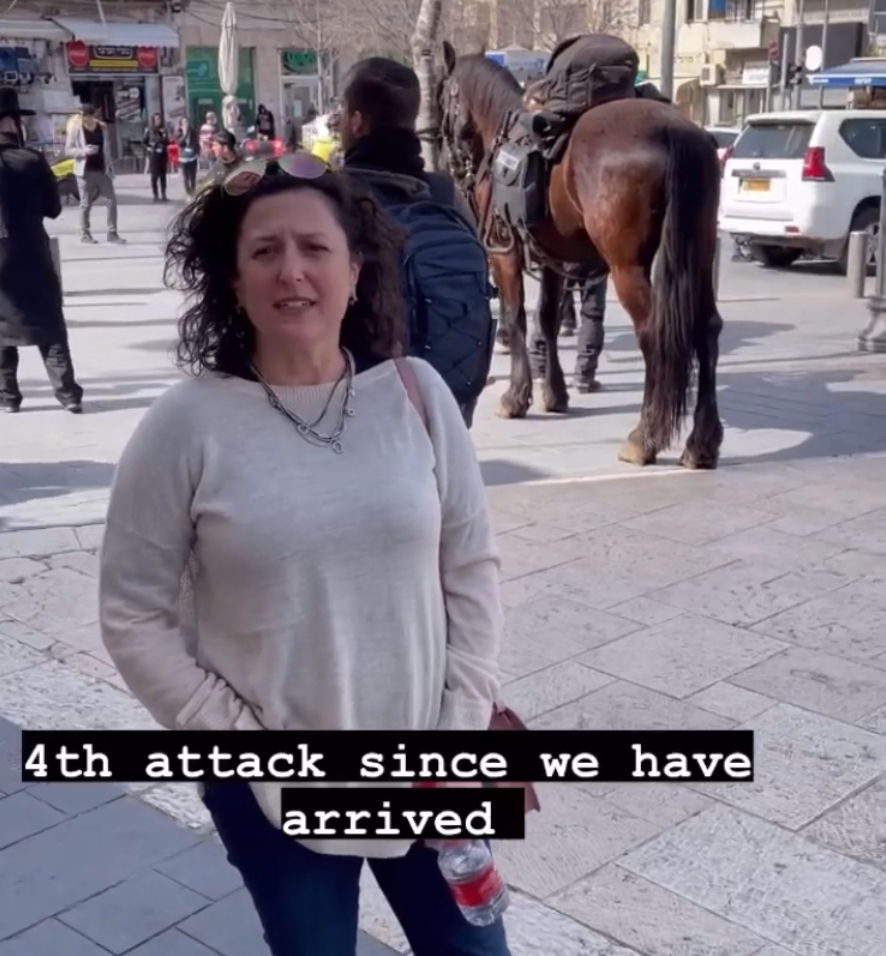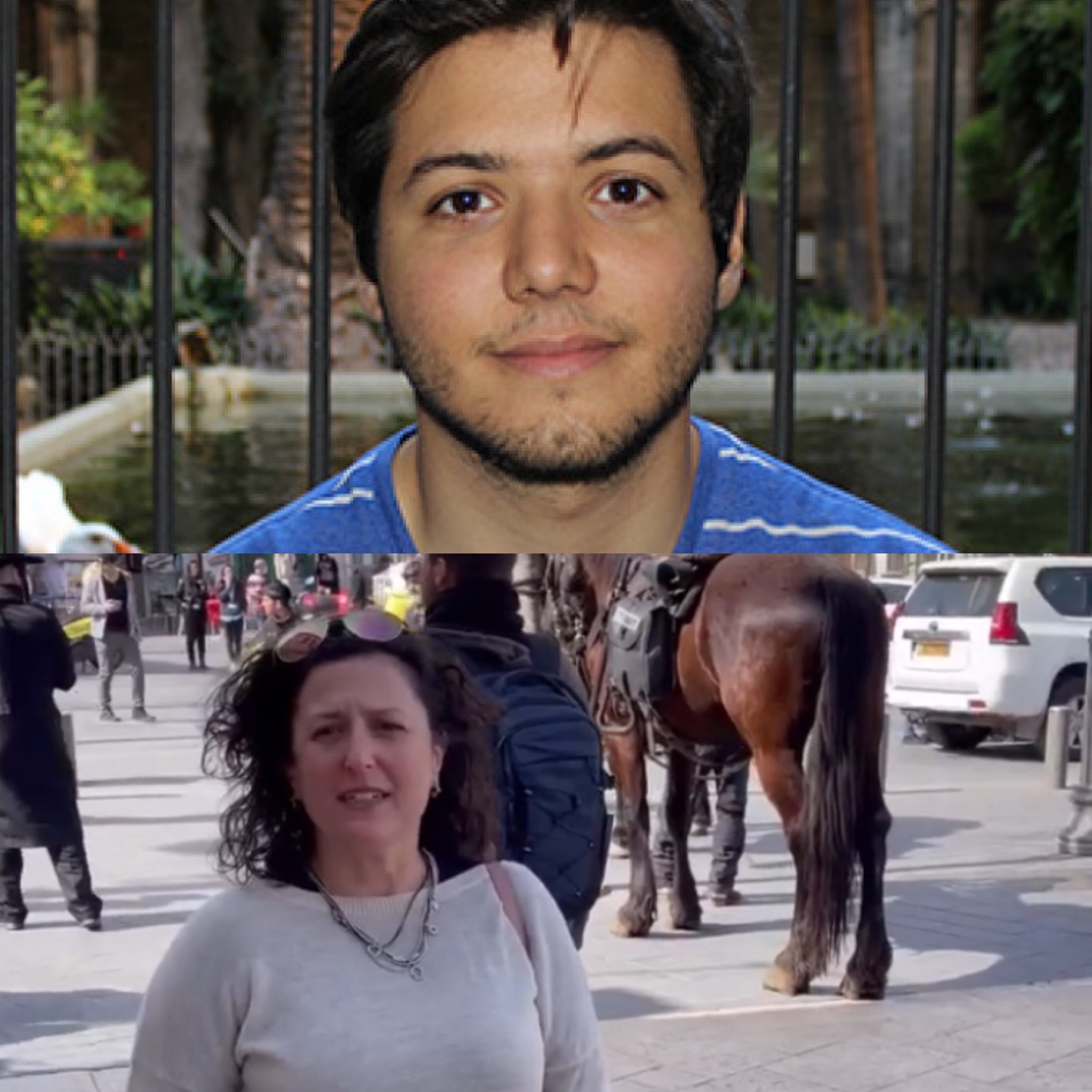The murder of two Israeli border police last Sunday by terrorists linked to ISIS became personal for former Toronto resident Adir Krafman.
Krafman and his wife moved to Israel just a few months ago from Canada—but he was actually born and raised in Hadera.
When two Arab Israelis opened fire there on March 27, Krafman initially thought it was just another isolated incident of violence. The kind that Israelis are used to.
At least until his phone started buzzing with messages from WhatsApp.
“And then I turned on my television screen and saw that the shooting had happened really close to where I used to live, where I grew up—and also very close to where I have family members that live, where my uncle has a business.”
Krafman was the director of communications for the Centre for Israel and Jewish Affairs (CIJA) in Toronto until last October. He and his wife made aliyah at the end of the year. Now he works in the private sector in Tel Aviv.
The targeted attack on Herbert Samuel Street, in his hometown, killed two border police officers, known locally as Magavnikim: one was Druze, the other was a recent Jewish immigrant from France.
“I have to tell you, it’s a scary feeling,” Krafman said in an interview with The CJN Daily. “My family members that have lived here for years are more used to that kind of experience, but it was something that I wasn’t used to… and it’s definitely something that my wife, who is Canadian-born, was definitely not used to.”
Krafman moved to Toronto when he was nine. At that time, the Second Intifada was starting, and his mother sent him to live in Canada—where his father was already established—for safety reasons.
Twenty-two years later, Krafman is in mourning with the rest of Israel for the 11 Israelis who were killed in three separate terror attacks in recent days.
“These are really 11 worlds that were extinguished. It’s difficult. There’s really a feeling [over] here of shared destiny between people. And it’s absolutely crushing.”

Canadian bystander in Jerusalem
The outbreak of violence continued in Jerusalem on Wednesday, March 30, just as Jewish Federation of Edmonton CEO Stacey Levitt-Wright and her husband were headed for the Machane Yehuda market.
All of a sudden, the vacationing couple saw mounted police galloping down the middle of the street. These were followed by about a dozen police motorcycles and squad cars, with their sirens blaring.
“And my husband said, ‘Is that a drill?’” recalled Levitt-Wright, speaking to The CJN Daily after the incident. “And we knew something was happening.”
They had hoped to board the tram, but it was stopped because security forces had been tipped off to two suspected Palestinian terrorists riding on the tram just ahead of them. Officers chased the men into a butcher shop inside the famous market, and arrested them.
Levitt-Wright documented the scene on social media. The pictures were different from the typical Israel holiday snaps that she had planned to share with followers of the Edmonton Jewish federation.
She admitted that before travelling to Jerusalem, Israeli colleagues and friends warned the couple to be extra vigilant. Israel is experiencing a wave of terror not seen since 2006.

What’s behind the attacks?
The Muslim holy month of Ramadan usually heralds a spike in anti-Israel incitement—and often upticks in violent attacks against Israeli Jews.
But this year, Ramadan also coincides with the milestone meeting between the foreign ministers of Israel, the United States and four Arab countries with whom Israel signed the Abraham Accords. The Negev Summit saw delegations from Bahrain, the United Arab Emirates, Egypt and Morocco come to Israel.
According to Krafman, many people are not surprised about the timing of the attacks, concurrent with foreign ministers of Arab countries talking with Israeli officials about a shared future.
The situation is further complicated by several factors.
Firstly, because several of the gunmen were actually Israeli Arab citizens, they were able to move around freely.
“So there isn’t a security barrier that you can reinforce, like the measures that you can take in the West Bank, in Judea and Samaria,” Krafman said. “We live together, we’re neighbours. We share the same infrastructure.”
Secondly, in his view, the attacks do not seem to be organized, at least in the initial stages of this wave of violence: they were carried out by lone-wolf cells, or by people who have been radicalized in prison or online. That makes it a challenge for Israel’s intelligence apparatus to prevent them.
“We’re not talking about some sort of coordinated effort like, for example, Hamas sending groups of suicide bombers into Israel. There’s no real address to go after.”
Ramadan and Passover flashpoint
Tensions are also high because the month of April contains key religious festivals for both Jews and Muslims, and wider access to Jerusalem’s important pilgrimage sites is often a flashpoint. (Ramadan begins April 1. Passover starts April 15.)
Krafman says Naftali Bennett’s government has to walk a fine line negotiating with the leadership of the Palestinians about loosening access to places of worship in Jerusalem, and about allowing more travel and work permits for Palestinians. Last spring, similar issues led to an explosion of violence in and around Israel. The subsequent two-week long war with Hamas broke out May 11: it killed 256 Palestinians, and 13 Israelis.
Several hours after Wednesday’s police action in Jerusalem, Stacey Levitt-Wright and her husband returned to Mahane Yehuda. There was still a heavy police presence on Ben Yehuda and Jaffa streets.
“Normally there’s no police to be seen, and right now, everywhere I look, there’s some form of police or police car or police motorcycle. It’s very unusual for me,” she said.
Despite the tension, she saw people “hanging out, doing their thing.”
The violence didn’t convince them to cut their Israel trip short, though. Instead, the couple left Jerusalem, as scheduled, to travel to the Galilee Panhandle area, where they were to take part in a Terry Fox Run being put on by one of the twinned communities supported by federations in Canada.
‘Israelis are resilient’
Nonetheless, she is glad to be visiting, even in this unsettled time.
“Life goes on and people are resilient, and this is why this country exists and why we should all be here.”
Adir Krafman also is noticing heightened tension in Tel Aviv at the moment. Many Israelis, including him, are now pivoting to working from home for the time being. Yet, he has no thought of moving back to Canada for a second time.
“There’s a real sense of defiance in that we will not be deterred by terror.
“I walked along the beach today, and I live very close to Jaffa—so you see a mixture of people of all shapes and colours and faces. It’s really a beautiful thing to see.”
